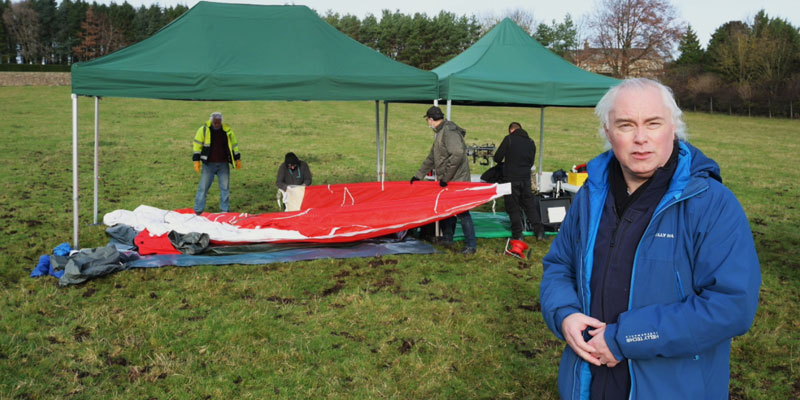
Rooftop lab set to take communications technology to new heights
A rooftop lab in our new Institute for Safe Autonomy building opens up exciting horizons for high altitude platform communications specialist Professor David Grace and his team.
Name: Professor David Grace
Title: Director of York's Centre for High Altitude Platform Applications
Research pillar: Communications
The challenge
Remote rural areas around the world often have limited access to broadband and mobile communications. It’s a problem which limits economic development and causes problems in emergency response situations, such as severe storms or earthquakes. High altitude platforms (HAPs) are aircraft or airships which operate in the stratosphere from 17 to 22 km above earth, where they beam wireless communications back to earth via on-board transceivers.
The advantage of HAPs is they have the potential to bring wireless communication to rural communities and to regions of the world where difficult terrain and cost rule out more conventional terrestrial networks. HAPs can also be used as a temporary solution at short notice to provide communications for disaster relief teams - and at major events, including music festivals and sports events where large crowds struggle for connectivity. They are also used for high resolution continuous atmospheric and environmental monitoring.
The research
Professor David Grace and his team at York are trailblazers in HAP technology with an impressive 20-year track record in developments that are already catching the attention of investors and some of the biggest names in global telecommunications. Their current work includes research funded by the Department for Digital, Culture, Media and Sport 5G Testbed and Trials project. The Mobile Access North Yorkshire (MANY) project uses Helikites - a cross between a kite and balloon - to bring improved mobile connectivity to rural areas of North Yorkshire. They’re exploring the use of HAPs to provide wireless communications to underserved communities and connected and self-driving vehicles in remote areas.
The Institute’s new rooftop HAP Lab and research facilities could take their work to new heights enabling them to develop state-of-the-art HAP communication equipment and by making it easier to carry out initial testing. Their current test grounds are the University’s rugby pitches, with portable test systems allowing trials to operate where they are needed - recent rural connectivity was tested on the Tupgill Estate at Coverdale. Pioneering research into the use of HAPs to deliver secure quantum communications is also underway.
Professor Grace said: “One of the main benefits of the new Institute is that all our expertise and facilities will be in one building - that makes the logistics of our test flights significantly easier and we can collaborate with colleagues in adjoining labs, working on robotic and autonomous systems and AI. This new facility will help to secure York’s place at the forefront of HAP communications supporting safe, connected and autonomous systems which are set to transform the way we live and work.”
Contact David to find out more about his High Altitude Platforms research
